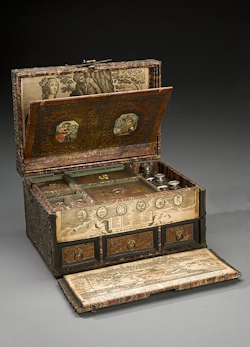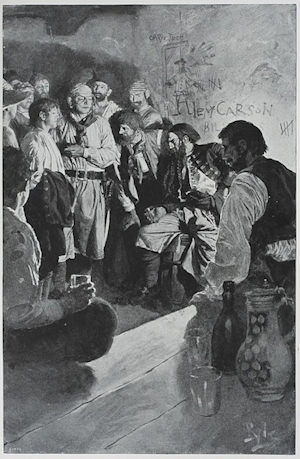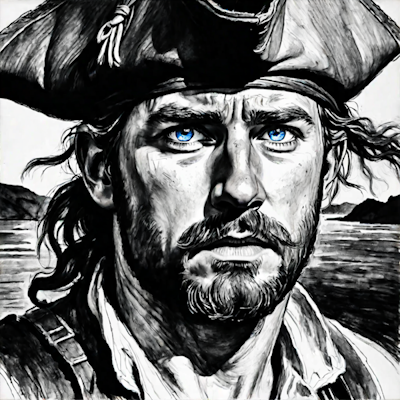 As all ships in the Age of Sail were made of wood a carpenter was essential, whether on a naval, merchant, or pirate ship. A ship’s carpenter was responsible for keeping the vessel afloat, making necessary repairs, and plugging holes. Carpentry was an extremely useful skill on board any ship and good carpenters were highly valued, especially on a pirate ship, which couldn’t just sail into a port for repairs. In the navy they were usually qualified shipwrights. They didn’t always have to be an able seaman, but were expected to pull and haul when required, although they probably spent most of the time carrying out repairs and generally maintaining the ship. On most vessels the carpenter usually answered directly to the boatswain.
As all ships in the Age of Sail were made of wood a carpenter was essential, whether on a naval, merchant, or pirate ship. A ship’s carpenter was responsible for keeping the vessel afloat, making necessary repairs, and plugging holes. Carpentry was an extremely useful skill on board any ship and good carpenters were highly valued, especially on a pirate ship, which couldn’t just sail into a port for repairs. In the navy they were usually qualified shipwrights. They didn’t always have to be an able seaman, but were expected to pull and haul when required, although they probably spent most of the time carrying out repairs and generally maintaining the ship. On most vessels the carpenter usually answered directly to the boatswain.


 The term quartermaster can be confusing, as the meaning can vary according to the context. The quartermaster on a naval vessel stood watch next to the helmsman and was responsible for maintaining the ship’s course, whereas in armies on land, a quartermaster was an officer who supervised logistics and requisitions, managed the stores and barracks, and distributed supplies and provisions. A pirate quartermaster had numerous, less well defined responsibilities, which could vary from ship to ship.
The term quartermaster can be confusing, as the meaning can vary according to the context. The quartermaster on a naval vessel stood watch next to the helmsman and was responsible for maintaining the ship’s course, whereas in armies on land, a quartermaster was an officer who supervised logistics and requisitions, managed the stores and barracks, and distributed supplies and provisions. A pirate quartermaster had numerous, less well defined responsibilities, which could vary from ship to ship.